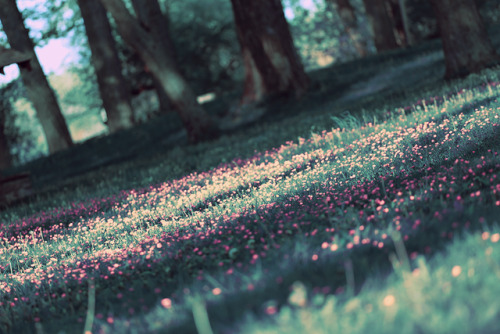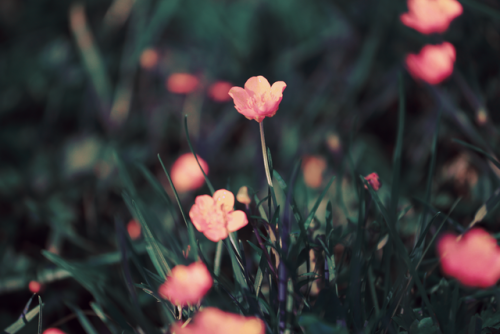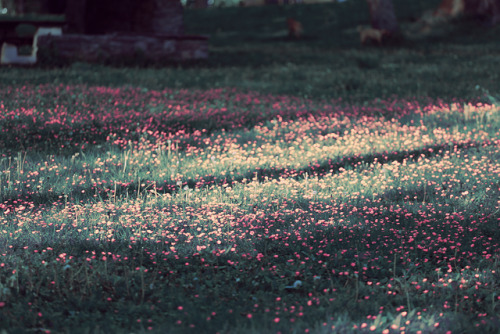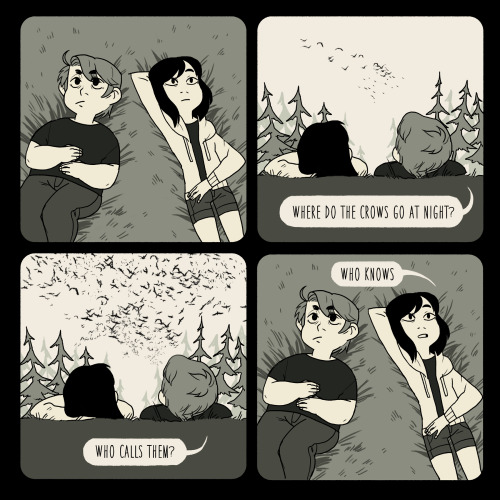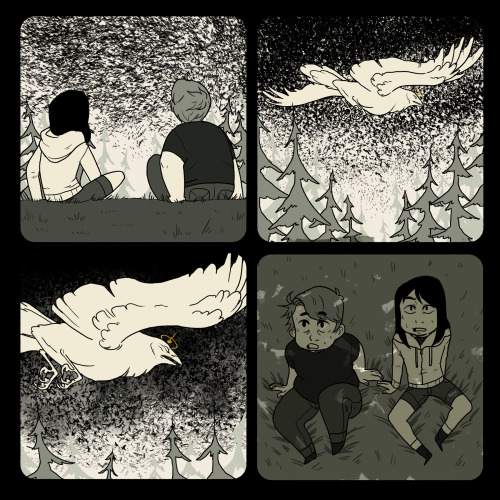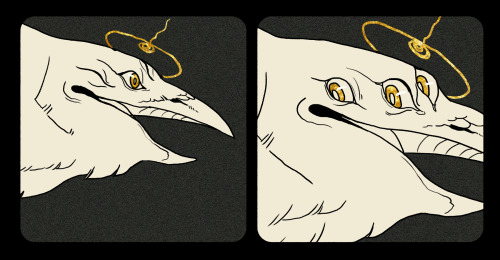I'm Pretty New Here, And I Don't Actually Know Much About Dinosaurs (just Followed This Blog Because
I'm pretty new here, and I don't actually know much about dinosaurs (just followed this blog because it seemed really cool and interesting) so could you explain what shrink-wrapped means?
Of course! See, modern animals have a lot of muscles, fat, fluff, etc, and end up looking very little like their actual skeleton. For example, look at how much fluff owls have:

(Source)
However, lots of palaeoartists completely ignore this! They basically stretch skin over the bones and call it a day. One especially bad example that was featured on @palaeofail is this poor pterosaur:

It barely has room for its digestive system. It’s definitely missing the air sac system that allows it to breathe. It’s got virtually no muscles on the arms - how does it fly?? - on the head (no wonder its mouth is open. It has no jaw muscles to close it!), on the torso (it needs to flap), or on the legs (walking) It doesn’t have any fat at all, so it’s definitely starving (maybe because it can’t fly or close its moth?). The skin is much too thin; you can see all of the bones and its wing membranes should be much, much thicker. And it’s missing the hair-like pycnofibres that should be covering its body!
Many palaeoartists have started to strike back at this by drawing modern animals like we might draw them if we found their bones:

(Source)
[House cat]


(Source)
More Posts from Othermanymore and Others

A Seljuk (or Seljuq) silver ring depicting a lion, dated to the 11th to 12th centuries CE. This image was found on WordPress and attributed to Christie’s.

Tellurium
Locality:
Faţa Băii (Facebánya; Facebay; Fatiabaja), Zlatna (Zalatna; Zalathna), Alba Co., Romania
Stephan Wolfsried’s Photo





David Fleck - https://society6.com/fleck - http://fleck-tesseract.tumblr.com - https://www.facebook.com/FleckArt - https://www.kickstarter.com/projects/1623436576/celestial-cities
Other Important Survival Skills & Information
For whatever reason you’re here, knowing survival skills can save your life or your character’s life (especially for those writers out there that are researching this topic).
Basic Rules If You Are Lost And Alone In The Wilderness
Basic Wilderness Survival Skills
Celestial Navigation & Land Navigation - Navigation without a Compass
Finding True North Without a Compass
Telling Time Without A Clock: Scandinavian Daymarks
Wilderness Survival - Field-Expedient Direction Finding
Wilderness Survival - Contact With People
Wilderness Survival - Clouds: Foretellers Of Weather
Wilderness Survival - Camouflage
Wilderness Survival - Sea Survival
Wilderness Survival - Cold Weather Survival
Wilderness Survival - Tropical Survival
Wilderness Survival - Desert Survival
Wilderness Survival - Field-Expedient Weapons, Tools, And Equipment
Wilderness Survival - Psychology of Survival
Wilderness Survival - Signaling Techniques
Morse Code
The Survivalist - Survival Gear: Make Your Own Signal Whistle
The Survivalist - Survival Skills: Signal Whistle Codes
The Survivalist - Survival Gear: How To Make A Compass
The Survivalist - Survival Skills: Folk Wisdom Weather Predictors
The Survivalist - How To Make Rope From Natural Fibers
The Survivalist - Tying Knots That Work
The Survivalist - More Knots That Work
The Survivalist - How To Make Your Own Tick And Bug Repellent
The Survivalist - How To Make A Toothbrush In The Field
The Survivalist - Insulate You Clothes To Survive The Cold
The Survivalist - Survival Skills: Find Natural Toilet Paper
Going To The Bathroom In The Woods 101
How To Go In The Woods
Plants That Repel Mosquitoes
One Green Planet - DIY Natural Insect Repellent
Preventing Bug Bites In The Woods
Homemade Natural Bug Spray Recipes
Bushcraft Camp Hygiene
Wilderness Hygiene
Preparing For Your First Year Trip — Wilderness Living
Camping and Cramping: How To Handle Your Period While You Enjoy The Great Outdoors
Hiking While Menstruating?
What Did Women Use For Menstruation In Europe and America From 1700 - 1900, And Probably Earlier?
Menstruation, Menstrual Hygiene and Woman’s Health in Ancient Egypt
Survival: Animal Attacks
How to Survive Wild Animal Attacks



Exercise 49 Results: Leatherworking Step by Step
Artist: Tim Von Rueden (vonn)
Check out the Exercise and Download the Practice Sheet HERE.
When it comes to fantasy concept and illustration work, you would be hard pressed not to include leather of some kind. We see it everywhere in video games, movies, and shows. I believe this material is essential to understand if you want to work in the industry. I personally love working with leather as it’s a textured surface that either has little to no shine, or a pretty defined highlight. You can carve into it to add designs or you can give it seams and stitching to add that extra detail. Learn to love this material as you may be having to create it a substantial amount of time!




Early Medieval pattern-welded Sickle
Reconstruction by Thorkil
The sickle was based on an antler sickle case found in Stargard Szczecinski, West Pomerania (Poland). The original was richly decorated with geometrical motives, popular at that time. Thorkil’s version is a very faithful reconstruction of it, with all circles, dots, triangles and lines made on natural deer antler.
The decoration was hand engraved, then coloured with natural dark dye for a contrast and stronger effect. The sickle blade’s is pattern-welded (damascus) steel. It was hand forged (in charcoal fire) of 20 twisted layers. The cutting edge was forge-welded to pattern-welded part.
Source: Copyright © 2017 Thorkil
-
 abirdsnest liked this · 1 month ago
abirdsnest liked this · 1 month ago -
 lee-lee-is-here reblogged this · 1 month ago
lee-lee-is-here reblogged this · 1 month ago -
 lee-lee-is-here liked this · 1 month ago
lee-lee-is-here liked this · 1 month ago -
 iwantmoreoctopusses reblogged this · 1 month ago
iwantmoreoctopusses reblogged this · 1 month ago -
 abirdsnest reblogged this · 1 month ago
abirdsnest reblogged this · 1 month ago -
 coffee-addict-confessional liked this · 3 months ago
coffee-addict-confessional liked this · 3 months ago -
 sweetest-garlic reblogged this · 3 months ago
sweetest-garlic reblogged this · 3 months ago -
 sweetest-garlic liked this · 3 months ago
sweetest-garlic liked this · 3 months ago -
 vidoof reblogged this · 3 months ago
vidoof reblogged this · 3 months ago -
 vidoof liked this · 3 months ago
vidoof liked this · 3 months ago -
 kyougokazumi liked this · 3 months ago
kyougokazumi liked this · 3 months ago -
 puipui-official reblogged this · 3 months ago
puipui-official reblogged this · 3 months ago -
 puipui-official liked this · 3 months ago
puipui-official liked this · 3 months ago -
 ashenmotive reblogged this · 3 months ago
ashenmotive reblogged this · 3 months ago -
 vaivala reblogged this · 3 months ago
vaivala reblogged this · 3 months ago -
 its-just-a-game liked this · 5 months ago
its-just-a-game liked this · 5 months ago -
 their-eyes-were-watching-god liked this · 5 months ago
their-eyes-were-watching-god liked this · 5 months ago -
 fingerstealer reblogged this · 6 months ago
fingerstealer reblogged this · 6 months ago -
 hyneareblogs reblogged this · 7 months ago
hyneareblogs reblogged this · 7 months ago -
 zyanova liked this · 7 months ago
zyanova liked this · 7 months ago -
 slasherslut883 liked this · 8 months ago
slasherslut883 liked this · 8 months ago -
 kr1spbacon liked this · 10 months ago
kr1spbacon liked this · 10 months ago -
 fingerstealer liked this · 1 year ago
fingerstealer liked this · 1 year ago -
 feathersandscales3 reblogged this · 1 year ago
feathersandscales3 reblogged this · 1 year ago -
 eyesofaniris liked this · 1 year ago
eyesofaniris liked this · 1 year ago -
 tellervini liked this · 1 year ago
tellervini liked this · 1 year ago -
 ohabeeeeeee reblogged this · 1 year ago
ohabeeeeeee reblogged this · 1 year ago -
 breakfastatlenas liked this · 1 year ago
breakfastatlenas liked this · 1 year ago -
 strawberry-arrowtip reblogged this · 1 year ago
strawberry-arrowtip reblogged this · 1 year ago -
 strawberry-arrowtip liked this · 1 year ago
strawberry-arrowtip liked this · 1 year ago -
 spacefinch liked this · 1 year ago
spacefinch liked this · 1 year ago -
 jaybird2240 liked this · 1 year ago
jaybird2240 liked this · 1 year ago -
 deepermadness reblogged this · 1 year ago
deepermadness reblogged this · 1 year ago -
 juzibelle liked this · 2 years ago
juzibelle liked this · 2 years ago -
 hopetilia liked this · 2 years ago
hopetilia liked this · 2 years ago -
 ruinconstellation liked this · 2 years ago
ruinconstellation liked this · 2 years ago -
 annabananabread96 liked this · 2 years ago
annabananabread96 liked this · 2 years ago -
 deviledeggi reblogged this · 2 years ago
deviledeggi reblogged this · 2 years ago -
 abwaertsspirale liked this · 2 years ago
abwaertsspirale liked this · 2 years ago -
 deviledeggi liked this · 2 years ago
deviledeggi liked this · 2 years ago -
 markismelarkis reblogged this · 2 years ago
markismelarkis reblogged this · 2 years ago -
 swordwizardofdoom liked this · 2 years ago
swordwizardofdoom liked this · 2 years ago -
 odyssey-of-babbitt reblogged this · 3 years ago
odyssey-of-babbitt reblogged this · 3 years ago -
 runny-babbittx2 liked this · 3 years ago
runny-babbittx2 liked this · 3 years ago -
 ruby-seadragon liked this · 3 years ago
ruby-seadragon liked this · 3 years ago -
 gornwen liked this · 3 years ago
gornwen liked this · 3 years ago -
 sendryl liked this · 3 years ago
sendryl liked this · 3 years ago




